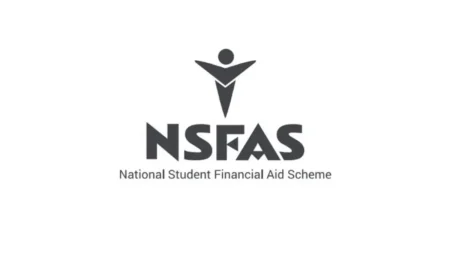In South Africa, the National Student Financial Aid Scheme (NSFAS) is a critical resource for many students who require financial assistance to pursue higher education. However, there are instances where students’ applications for funding are declined. If you find yourself in this situation, do not lose hope. You have the right to appeal the decision, and with the right approach, you can successfully overturn it.
This article provides a comprehensive guide on how to successfully navigate the NSFAS appeal process, ensuring you have the best chance of securing the financial support you need.
Understanding the NSFAS Appeal Process
The NSFAS appeal process is designed to allow students to challenge funding decisions they believe are unfair or incorrect. Here are the key steps in this process:
- Identify the Reason for Rejection: The first step in the appeal process is to understand why your application was rejected. NSFAS typically provides a reason for their decision, which can range from missing documentation to exceeding the household income threshold.
- Gather Supporting Documents: Once you understand the reason for rejection, gather all necessary documents that can support your appeal. This may include additional financial documents, academic records, or proof of special circumstances.
- Complete the Appeal Form: NSFAS provides an appeal form that must be completed and submitted along with your supporting documents. This form is available on the NSFAS website.
- Write a Detailed Appeal Letter: A well-crafted appeal letter is crucial. This letter should clearly explain your situation, the reason for your appeal, and why you believe the initial decision was incorrect. Be honest and provide as much detail as possible.
- Submit Your Appeal on Time: Appeals must be submitted within a specified timeframe, usually within 30 days of receiving the rejection notice. Make sure you adhere to this deadline to ensure your appeal is considered.
Step-by-Step Guide to Submitting an NSFAS Appeal
Step 1: Review Your NSFAS Rejection Notice
Carefully read the rejection notice from NSFAS. Understanding the specific reason for the rejection is essential in preparing your appeal. Common reasons for rejection include:
- Incomplete documentation
- Income above the threshold
- Academic performance not meeting the required standards
- Missing the application deadline
Step 2: Gather Required Documents
Depending on the reason for your rejection, gather all necessary documents to support your appeal. This may include:
- Proof of household income (payslips, bank statements, affidavits)
- Academic transcripts or letters from your school
- Medical records if there are health-related issues impacting your studies
- Death certificates or divorce decrees if there are family changes affecting your financial situation
Step 3: Complete the NSFAS Appeal Form
The appeal form is a critical part of your submission. Ensure you:
- Fill out all required fields accurately
- Attach all supporting documents
- Provide clear and concise answers
You can find the appeal form on the NSFAS website or request it from your institution’s financial aid office.
Step 4: Write an Effective Appeal Letter
Your appeal letter is your chance to personally explain your situation to the NSFAS review committee. Here are some tips for writing an effective appeal letter:
- Start with a clear introduction: Briefly state your name, application number, and the reason for your appeal.
- Explain your circumstances: Provide a detailed explanation of the circumstances that have affected your ability to pay for your education. Be honest and specific.
- Highlight changes or mistakes: If there were any mistakes in your original application or changes in your financial situation since you applied, make sure to highlight these.
- Express your commitment to your education: Emphasize your dedication to your studies and how NSFAS funding will help you achieve your academic and career goals.
- Be concise and professional: Keep your letter clear, concise, and free of unnecessary information. Maintain a respectful and professional tone throughout.
Related: Can NSFAS Fund You from TVET College to University? Everything You Need to Know
Sample Appeal Letter
[Your Name]
[Your Address]
[City, Postal Code]
[Email Address]
[Phone Number]
[Date]
NSFAS Review Committee
National Student Financial Aid Scheme
[NSFAS Office Address]
Dear NSFAS Review Committee,
I am writing to formally appeal the decision to decline my application for NSFAS funding for the [academic year]. My application reference number is [Your Application Number].
I believe that my application was unfairly rejected due to [reason for rejection]. I would like to provide additional information and documentation to support my case.
[Explain your circumstances in detail, providing specific examples and relevant information. Include any changes or corrections that address the reason for rejection.]
I am committed to my education and achieving my goals. Receiving NSFAS funding is crucial for me to continue my studies without interruption. I have attached all necessary supporting documents for your review.
Thank you for considering my appeal. I look forward to a positive response.
Sincerely,
[Your Name]
Step 5: Submit Your Appeal
Ensure that you submit your appeal within the specified timeframe. Late submissions are typically not considered. You can submit your appeal through the NSFAS website, by email, or by mail, depending on the instructions provided by NSFAS.
Step 6: Follow Up
After submitting your appeal, it is important to follow up with NSFAS to ensure that your appeal has been received and is being processed. You can do this by:
- Checking your NSFAS account online
- Contacting the NSFAS call center
- Visiting your institution’s financial aid office
Tips for a Successful NSFAS Appeal Process
- Be Honest and Transparent: Provide truthful and accurate information. Any false information can result in your appeal being denied.
- Be Organized: Keep all your documents organized and easily accessible. This will help you provide any additional information quickly if requested.
- Stay Positive and Professional: Maintain a positive and professional tone in all your communications with NSFAS.
- Seek Help if Needed: If you are unsure about any part of the appeal process, seek help from your institution’s financial aid office or a trusted advisor.
Related: Top Reasons Why NSFAS Funding Applications Are Rejected and Tips to Avoid Them
Common Mistakes to Avoid During the NSFAS Appeal Process
- Missing the Deadline: Make sure to submit your appeal within the given timeframe.
- Incomplete Documentation: Ensure that all required documents are included with your appeal.
- Lack of Detail in the Appeal Letter: Provide a detailed and thorough explanation in your appeal letter.
- Failure to Follow Up: Follow up with NSFAS to confirm that your appeal has been received and is being processed.
Navigating the NSFAS appeal process can be a daunting task, but with careful preparation and attention to detail, you can increase your chances of a successful outcome. By understanding the reasons for your rejection, gathering the necessary documents, and presenting a clear and compelling case, you can demonstrate to NSFAS why you deserve their support.
Remember to stay organized, honest, and professional throughout the process. Good luck!










